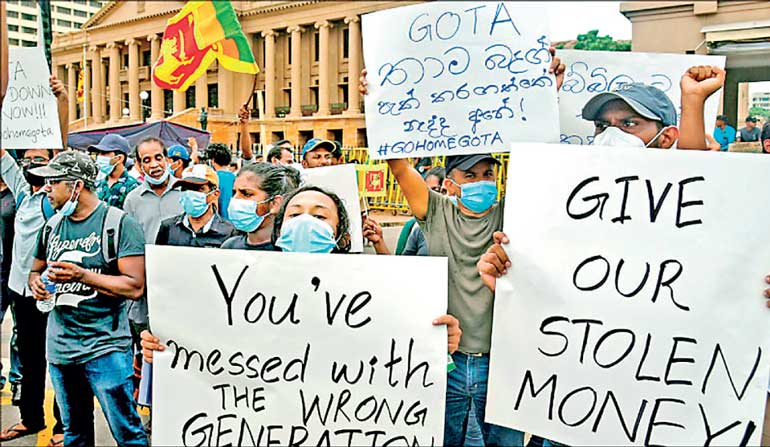Monday Feb 16, 2026
Monday Feb 16, 2026
Saturday, 1 October 2022 00:00 - - {{hitsCtrl.values.hits}}

The protest movement came into being due to the economic difficulties that the people encountered when the dollar was devalued, imports restricted and prices shot up. It is not an artificial creation to destabilise the country
|
By National Peace Council
The declaration of High Security Zones in Colombo and the requirement that Police should be given prior notice of public protests are indicators that the Government is giving priority to quelling public protests.
These decisions bolster steps already taken to restrict the protest movement by targeted arrests of its leaders even by the Prevention of Terrorism Act, by seemingly arbitrary arrests of random participants in the protest movement and by strengthening laws that further restrict the right to protest.
The protest movement came into being due to the economic difficulties that the people encountered when the dollar was devalued, imports restricted and prices shot up. It is not an artificial creation to destabilise the country.
It arose due to the collapse of the economy in the context of the country’s default of its international loan repayment obligations. The protests continue due to the ongoing decline in the economic situation that is severely affecting the lives of poorer sections of the population and the lack of sensitivity on the part of the Government to the people’s needs.
In this context, the Government needs to heed the Human Rights Commission and Bar Association which have called on the Government to withdraw its law on setting up high security zones in Colombo in a time of peace. The National Peace Council calls on the Government to address the root causes of the protest movement, its call for systems change and non-corruption, and ensure that norms of good governance are strictly adhered to.
Sri Lanka is presently defending its position on human rights and governance before the UN Human Rights Council in Geneva. It is facing a new resolution on these issues that is stronger than any before.
A negative verdict will impact on the country’s international reputation and ability to attract international support in the form of economic investments and credit lines. Overcoming these challenges is the statesmanship that was and is expected of President Ranil Wickremesinghe, to remain a democratic country without economic setbacks or international stigma.